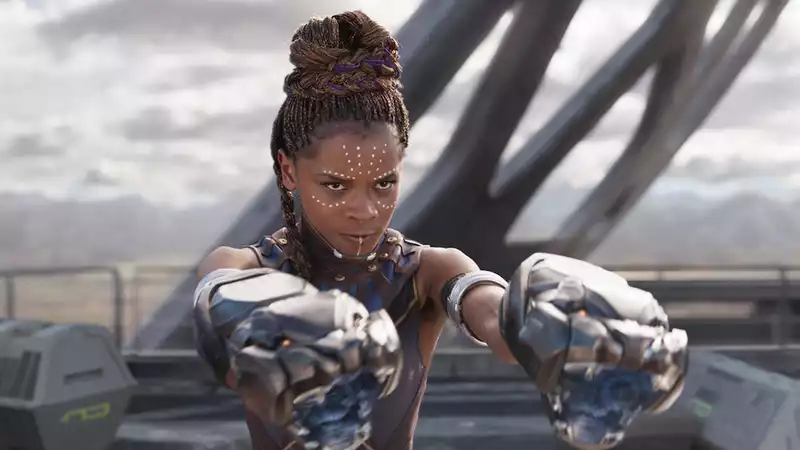Details of Black Panther 2 have been revealed, much to the delight of many, including myself. Yes, there's no hiding it, a truckload of comic books, action figures, and awesome baseball jerseys are coming to my house in a few days - I'm a Black Panther fan.
As you can imagine, my heart warmed when I saw the title of the long-awaited "Black Panther" sequel: Wakanda Forever. The potential sequel is as bright and glossy as the title art seen in Marvel Studios' "Celebrates The Movies" trailer.
But it is important to remember the last time we saw Wakanda. No, it is not a flashback to the Winter Soldier's desacralization in The Falcon and the Winter Soldier. I want you to think of "Infinity War".
When we last really saw Wakanda, the nation was in disarray after the war with Thanos and his minions. After a brief victory over the Black Order and the Outriders, all was lost in an instant. But now it is time for us to return to Wakanda and consider what could happen in Black Panther 2. Especially since there is no King T'Challa to drive the story.
So where does the nation of Wakanda go from there? According to Marvel's website, the sequel will "continue to explore the incomparable world of Wakanda and the rich and diverse characters introduced in the previous films."
In the aftermath of Chadwick Boseman's untimely passing, we know that Marvel Studios will not be recasting the role of T'Challa. We won't see T'Challa again, but that doesn't mean the mantle of Black Panther won't be taken from him.
More likely is Shuri, T'Challa's sister, who Letitia Wright plays in the film. Combined with rumors that Namor may be the main villain in Black Panther II, this would be the perfect opportunity to recreate the great fights in the comics (check out "Black Panther," Vol. 5, No. 11). Adding fight scenes to Shuri's technical greatness, which rivals that of the late Tony Stark, would add depth to an already fascinating character.
Another unacknowledged ideologically compelling figure in the Black Panther universe is Nakia. Long before T'Challa met with the UN at the end of the first Black Panther film to open Wakanda's resources to the world, it was Nakia who criticized the country's isolationist approach.
As a former member of Dora Milaje and with a background in espionage, she certainly has a story to tell. Based on her background in the comics, there is room for a heel turn in which she betrays her friends and allies.
Another great Nakia storyline is in the first episode of Black Panther, Volume 3, which happens to be the first appearance of Dora Milaje, Okoye, and Zuri. It also introduces Nakia into the series and begins a series of events that ultimately make her a thorn in T'Challa's (and his significant others') side, the Malice.
"Malice has an important backstory with two of T'Challa's rivals, Erik Killmonger and Man-Ape, more familiarly known as M'Baku; in the first film Killmonger appeared to be dead, but comic book fans know Michael B. Jordan's character and are familiar with the altar of his resurrection. Killmonger once used the altar to resurrect the tortured Nakia, gaining enhanced abilities in the process. If Killmonger is (somehow) actually resurrected, there is a built-in storyline for this.
And then there is Mbaku, known in the comics as Man-Ape. We have seen Lupita Nyongo and Winston Duke team up on the silver screen before. If one storyline is any indication, the evil incarnation of N'yongo's character and the leader of the Jabali tribe could work together in a way that would shock audiences. In the comic, during a series of efforts to attack T'Challa and his family, Malis freed Man-Ape with a plan to kidnap Queen Mother Ramonda. Comics also has a series literally named "Wakanda Forever" that includes Nakia, Ayo of "Falcon and the Winter Soldier" fame, and Secretary Everett Ross.
By focusing the story on just two characters, there is a way to incorporate many of the aforementioned "rich and varied" characters. Still, one can't help but recall the dialogue that opened the original film:
Young Killmonger: Bubba.
N'Jobu: Yes, son.
Young Killmonger: "Tell me [which one? [Killmonger. : It's the story of my homeland
And N'Jobu tells young Killmonger the history of the vibranium meteorite that crashed from the sky and led to the founding of Wakanda. To understand why Wakanda is eternal, we need to know more about how it was founded and how it became the divided society depicted at the beginning of the first "Black Panther" film.
Talking about the characters in the first film only scratches the surface of this sub-Saharan country unencumbered by colonialism. To speak of the world of Wakanda, we must explore the rocks of an era that changed this country forever. Sure, we see towering architecture and weapons of genius. But what about the origins of vibranium in Wakanda? Do such stories call back to the return of the claw?
And besides vibranium, there is much more to be told about Wakandan traditions and government. Before the meteorite hit Africa, there was a time known as "Old Wakanda." That era was ruled by originators, a type of mythical beast. The Vibranium meteorite foretold a conflict between mortal man and gods, a beautiful myth waiting to be explored on the screen.
Whatever form Marvel Studios and Ryan Coogler take with the sequel, I firmly believe it will be glorious and long overdue. Whether it is about Wakanda's independence, its ideology, or the constant threat of invasion, it is sure to be a fascinating story that will resonate for years to come.
.









Comments